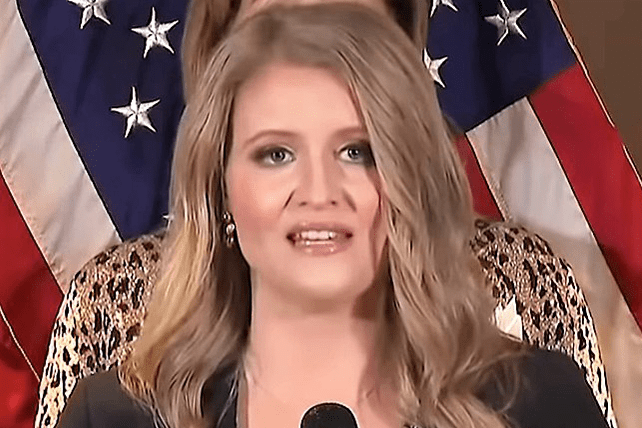On Monday (Aug. 14), former president Donald Trump received his fourth indictment, this time from a grand jury in Fulton County, Georgia. The indictment includes 41 charges and 18 other defendants, including former New York City mayor Rudy Giuliani, and lawyer Jenna Ellis. Both have served on Trump’s legal team.
Ellis is a notable figure among evangelicals, having served as a senior legal adviser for Trump and his 2020 re-election campaign. She also represented pastor John MacArthur and Grace Community Church in their legal battle against Los Angeles County and the state of California after the church refused to adhere to COVID-19 pandemic safety measures.
Ellis publicly identifies as a Christian.
The indictment includes 13 felony counts against Trump and centers on his campaign’s alleged effort to interfere with the 2020 presidential election results in Georgia.
Perhaps most memorable among Trump’s alleged offenses in Georgia was a phone call Trump made to Georgia Secretary of State Brad Raffensperger in which the then-president pressured Raffensperger to “find” enough votes to overturn Trump’s loss in the state.
RELATED: Will Trump’s Latest Indictment Hurt Him With Evangelical Christians? Probably Not.
Trump and his co-defendants are being charged under Georgia’s RICO (Racketeer Influenced and Corrupt Organizations) Act, which is aimed at stamping out organized crime. Notably, Giuliani helped to pioneer RICO legislation while serving as mayor of New York.
The defendants are accused of working in a coordinated effort to illegally overturn the election results in Georgia.
“Trump and the other Defendants charged in this Indictment refused to accept that Trump lost, and they knowingly and willfully joined a conspiracy to unlawfully change the outcome of the election in favor of Trump,” the indictment reads. “That conspiracy contained a common plan and purpose to commit two or more acts of racketeering activity in Fulton County, Georgia, elsewhere in the State of Georgia, and in other states.”
Fulton County District Attorney Fani Willis enlisted a special grand jury last year that heard testimony from 75 witnesses and reached the decision to indict.
Since the indictment against Trump includes only state charges, if convicted, Trump could not pardon himself in the event he is re-elected to the presidency, as a president can only pardon federal convictions.

